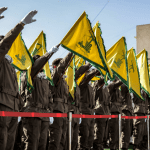Last month, Iran celebrated the International Court of Justice’s (ICJ) decision to hear the sanctions dispute it filed against the US, considering the ruling a new window of opportunity to view sanctions from a different seat than that it had long taken during Trump’s administration. Iran’s Foreign Minister, Javad Zarif, described the Court’s decision as “another legal and political victory for Iran” calling on the US to abide by international obligations.
Following the ICJ’s decision of its jurisdiction to take up the case filed by Iran against the US economic sanctions, Washington was quick to express its disappointment with the decision.
The Biden administration, Trump leaving them a troubling legacy on the issue, is having the world eyes turned to it, closely watching how the US will deal with Iran’s file to predict its conduct toward less critical issues. According to media leaks, the Biden administration is looking for new approaches out of the path of the previous US administration, whose actions went far introducing complexities that require an about-face from both Iran and the US.
Some of Biden’s advisers suggest that the US and Iran follow a reciprocity-based strategy, meaning they both take equivalent small steps to revive the nuclear deal. These steps, they believe, will not entail a paradigm shift in the US position nor impose unnecessary obligations on Washington that could be postponed until Tehran is re-tied by the agreement obligations.
Supporters of this argument seem to pass over the problematic of bringing Iran to the board. Iran refuses negotiating while the US sanctions still in place, considering this will leave it in a tight corner with no room for choices or alternatives that could be sought if it could escape the clutches of the US lift the economic sanctions that have been tightening the noose around Iran’s neck for long.
This half-baked American move adopts “less for less” tactic to avoid the expected challenges that might make the negotiation road bumpier. On one hand, there is the difficulty of returning to the nuclear pact given former experience negotiating with cunning Iranian negotiators who, worse, come this time to the negotiation table after a long hostility with the US during Trump’s administration.
On the other hand, there is very little time left before Iran’s presidential elections expected in June that may bring to office the hardline core of the Islamic Republic, which Iranian deep state institutions expect to be less tolerant with the US. The situation is not without contradiction. While the US is looking for a way to offer Tehran “Economic benefits” without lifting sanctions, Iran seeks claiming billions of dollars from the US as a compensation for the economic damage inflicted since the US withdrawal of the agreement in 2018.
The wide gap between the two sides seems to be unfolding. Days ago, in a televised speech, the Supreme Leader of Iran, Ali Khamenei, took the opportunity of the Persian New Year to pass on several messages warning the US against continuation of its “maximum Pressures” campaign – labelling it a prescription for failure, which Iran refuses. According to Khamenei, all the post-2015 era shifts were in favor of Iran not the US. The Supreme Leader held several comparisons between Iran’s stance in 2015 and 2021, pointing out that Iran rushed off implementing the nuclear agreement overburdening itself with commitments but it isn’t willing anymore, according to him, to miss the chance it but will act carefully in no hurry even if sanctions noose remained tightened around its neck.
Khamenei concluded his televised address making Iran’s position as clear as day saying that Iran’s “definitive policy” remains unchanged i.e. no return to the nuclear agreement unless all sanctions are lifted, confirming that Iran will play the long game.
Khamenei’s intransigence and hardening stance could be seen as no more than a usual attempt to raise the negotiation ceiling before going to the negotiation table. This could be true if internal alliances have been confirmed, a thing that is unlikely to happen with Biden in office facing increasing pressures from the Republicans who, rallying behind accomplishments of Trump’s administration, represent a significant impediment to Biden. These pressures have been evidenced by the joint letter signed by 119 Republican members of the Congress, which was sent to President Biden defining key determinants that should be considered before negotiating with Iran. They requested that Biden’s policy should encompass more than a nuclear negotiation. Rather, it should extend to address the full range of the Iranian conduct including developing its ballistic missile arsenal and Tehran’s support for “regional terrorism”.
Trump’s administration, along with the media and bipartisan politicians, managed to sow these allegations in the minds of a wide-cross section of the American society, who continue to see mitigation of sanctions on Iran without it returning to the pact as a step that renders the power the US gained since 2018 ineffective. This might explain some US deep state institutions’ black listing Iranian officials as was the case lately with the US Department of Justice announcing ten Iranians accused of conspiring to evade the US sanctions and disguising $300 million in transactions over 20 years, an announcement that is at odds with Biden’s administration tone and the question about its fate remains left to time to judge.












